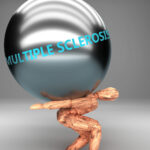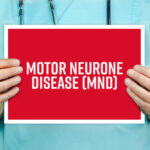Few medical conditions are as debilitating as migraines. Scientists are yet to figure out exactly what causes them, and there is no fixed cure, which does little to soothe the mind of someone diagnosed with this disorder.
Despite the lack of a cure, there are strategies your doctor may recommend to help you manage symptoms associated with migraines and other types of headaches. One of these is medical cannabis for migraines. MyAccess Clinics’ team of experienced specialists pride ourselves on delivering supportive care for patients suffering from a wide variety of chronic pain disorders, including migraines.
What causes a migraine?
A migraine is a type of headache disorder. The World Health Organisation recognises headache disorders as being among the most common disorders to affect the nervous system, noting that headaches are ‘associated with personal and societal burdens of pain, disability, damaged quality of life, and financial cost.
Other common types of headache disorders include tension headaches and cluster headaches.
The symptoms of these headache disorders tend to differ, as do the causes. The NHS states that ‘the exact cause of migraines is unknown, but they’re thought to be the result of abnormal brain activity temporarily affecting nerve signals, chemicals, and blood vessels in the brain.’
While the exact cause of a migraine is still yet unknown, sufferers often report certain triggers that indicate an attack is imminent. The NHS suggests that these triggers tend to differ from patient to patient. Some individuals may be affected by emotional triggers, like extreme stress or anxiety. Other individuals may find a migraine is triggered by physical factors, like exhaustion, poor posture, or a low blood sugar. Dietary and environmental triggers are also quite common.
How is a migraine different from other types of headaches?
Headache is the broad term used to describe a number of related conditions, all of which are characterised by head pain and accompanying symptoms.
Migraine:
The type of pain experienced during a migraine is often described as pulsating, throbbing, or pounding. It may affect one side of your head but can occur on both sides or shift from place to place. Migraine pain tends to start at a moderate level of intensity and increase over time. It may be accompanied by symptoms that include increased sensitivity to light and sound, nausea, dizziness, and vomiting.
Tension headache:
A tension-headache is one of the most common headache disorders and may be related to musculoskeletal issues, like poor posture. A tension headache will typically affect both sides of the head, tends to be quite mild and does not usually cause nausea or other related symptoms.
Cluster headache:
Cluster headaches are reasonably rare, affecting an estimated 1 in 1000 people. They are characterised by recurring bouts of intense pain felt on one side of the head (often just behind the eye). The term ‘cluster’ refers to the pattern with which the attacks occur — usually in episodes that last for weeks at a time. These attacks are then followed by periods of remission.
Cluster headaches are said to be incredibly painful and are usually accompanied by symptoms that include teariness and redness around the affected eye and a blocked or runny nose.
Medical cannabis and migraines
Since being legalised in 2018, medical cannabis in the UK has been prescribed by specialists to eligible patients suffering from a variety of conditions, one of which is migraines.
Medical cannabis is grown in a highly regulated environment and is very different to illicit street cannabis products. The prescription medication is available in various forms, including capsules, oil, and oral liquid. It contains a number of ingredients, most notably delta-9-tetrahydrocannabinol (THC) and cannabinol (CBD)
Medical cannabis interacts with our endocannabinoid system, which is a complex system that plays a role in everything from temperature regulation to pain modulation. Active ingredients, particularly THC and CBD, interact with receptors found in the endocannabinoid system and may help to manage pain.
Not all patients will be eligible for medical cannabis and not all clinicians are able to prescribe it. If you have been suffering from migraine headaches for a period of time and are yet to find a strategy that enables you to manage your symptoms, contact the experienced team at MyAccess Clinics today to learn more about medical cannabis for migraines.





